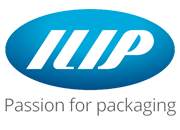MACFRUT, WITH ILIP, PACKAGING IS SUSTAINABLE AND CIRCULAR
Limiting use of virgin raw materials, reducing weight and replacing lids with heat-sealing and microbubble pads with paper are just some of the fruit and vegetable packaging innovations implemented by the Bologna-based company to reduce the environmental impact of plastic.
Valsamoggia (BO) 11 April 2023 – Once again, this year has seen ILIP confirm its participation in the Rimini Macfrut, one of the most important international events dedicated to the fruit and vegetable industry. From 3rd to 5th May, the Bologna-based company will be presenting the public of professional operators with an extensive catalogue of fruit and vegetable packaging solutions in both traditional and recycled plastic, designed and developed to be even more sustainable in social, economic and environmental terms (Pavilion B3, Stand 115).
The company’s latest innovations have been implemented with a view to further reducing use of the raw material adopted in the packaging, to offer renewable materials combined with plastic for those interested in such and to offer new solutions to foster logistics and storage of the more perishable, delicate fruit and vegetable products, like berries and strawberries. These include the R-PET B40 punnet, where the plastic microbubble pad has been replaced by a paper insert, and the B40 Air Wave protective punnet made from R-PET whose rounded base softens impacts, meaning there is no longer any need for a pad in the base. For premium fruit packaging, ILIP also proposes ezy:split, the hybrid recycled PET and cardboard punnet. The combination of the two materials reduces the plastic component by 40-45% and assures extensive customisation options of the cardboard component. Another advantage offered up by this packaging is that it is easy to recycle as the two components can be completely separated.
ILIP has managed to show that with a correct recycling chain, the environmental profile of plastic packaging can be improved: the company’s R-PET punnets are the result of the T2T R-PET® (an acronym for Tray to Tray in R-PET) project, whereby they are created from the second raw material deriving from the recycling of PET and post-consumption R-PET bottles and trays. The company represents a complete example of the closed loop system that underpins the circular economy, thanks to its membership of the ILPA Group, which vertically integrates the whole of the R-PET supply chain and boasts installed recycling capacity of 60,000 tonnes of post-consumption bottles and food containers of which much is used by ILIP to produce new food packaging.
In addition to improving the sustainability of its packaging, ILIP has also invested in increasing the preservation capacity of packaged fruit and vegetable products. The heat sealable punnets Life+ and Life+ Bioactive, finalised thanks to the collaboration with universities and research entities, have made plastic packaging “active” too, i.e. it now plays an antimicrobial and antioxidant role, thereby extending the shelf life of packaged fresh fruit by up to 48 hours more than equivalent, inactive packaging. Additionally, the heat sealing reduces the quantity of raw materials necessary to produce the packaging by up to 40%.
ILIP has always been aware of the important role played by packaging in improving the sustainability of the agricultural food chain. From an ethical, social and economic point of view, protecting the integrity of food and guaranteeing optimal preservation conditions, like correct transpiration, that natural perishing processes are slowed and greater shelf life achieved, thereby increasing the opportunity to consume safe, healthy food and reducing food waste. This naturally also yields an economic advantage for companies, which can improve their profitability. At the same time, without weighing too heavy on product consumer prices, the packaging must also have mechanical characteristics such as to allow for the automation of packaging processes and logistics. In thus doing, post-harvest processing time is speeded up, benefiting both the efficiency levels of the chain and product quality.
Furthermore, in addition to all these factors, we are also pursuing environmental sustainability through the reduction of weight, without compromising on performance, and the use of recycled and easily recyclable materials.
Tanks to the continuous investments in product and process research and development, ILIP is confirmed as a European example of just how to put the principles of the circular economy, environmental design and the regulatory demand for a growing use of recycled plastic so as to minimise the use of virgin raw materials, properly into practice.
All the tailor-made services and products of ILIP will be presented at stand 115, pavilion B3.
